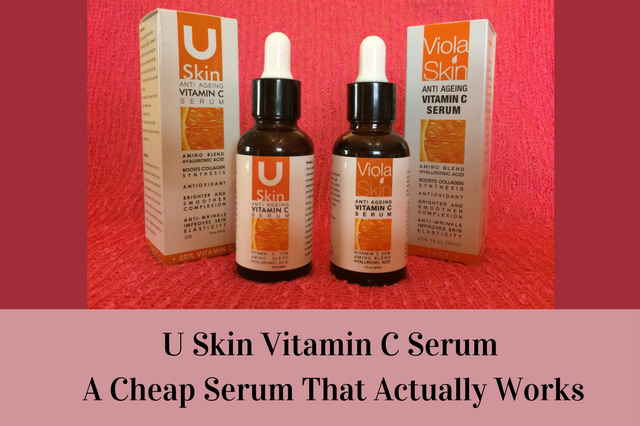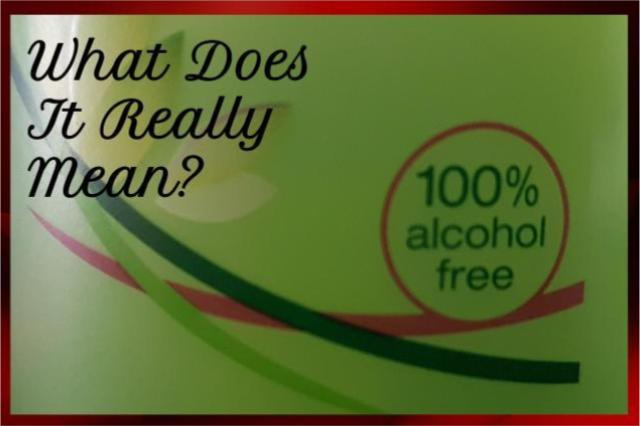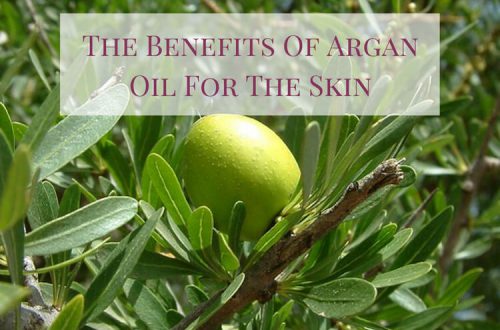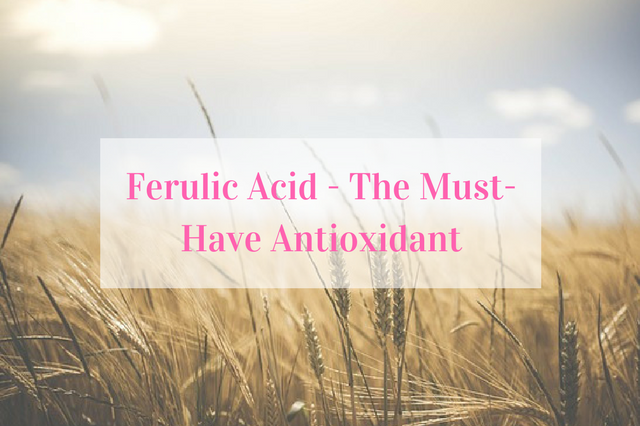
What Is Ferulic Acid – Why It’s A Must-Have In Your Skincare Arsenal
So what is ferulic acid and why is it so popular in the world of skincare? You’ve probably come across it numerous times already especially if you’re an avid user of vitamin C serums although you will find it in more products than just that but what exactly is it and what can it do in terms of anti-aging and keeping our skin protected from damage.
If you’re anything like me then you probably want to know the whys, whats, and wheres of everything especially when it comes to skincare and anything that you’re going to be applying frequently to your face. I know I personally don’t like adding anything new to my skincare regime until I know what it is and what it can do first. So with that in mind, let’s have a look at why ferulic acid has become such a popular addition to many skincare products.
What Exactly Is Ferulic Acid
 Ferulic acid is yet another big player in the world of antioxidants and it’s gaining more and more popularity as an anti-aging must along with the usual suspects of vitamin C and vitamin E. It’s actually a natural antioxidant found in many different foods and plants including the seeds of apples and oranges, nuts, rice, wheat, oats, and coffee just to name a few. For the most part, it can be used by almost everyone unless you happen to have some sort of allergy to it or if you suffer from extremely sensitive skin but most people find it non-problematic.
Ferulic acid is yet another big player in the world of antioxidants and it’s gaining more and more popularity as an anti-aging must along with the usual suspects of vitamin C and vitamin E. It’s actually a natural antioxidant found in many different foods and plants including the seeds of apples and oranges, nuts, rice, wheat, oats, and coffee just to name a few. For the most part, it can be used by almost everyone unless you happen to have some sort of allergy to it or if you suffer from extremely sensitive skin but most people find it non-problematic.
A major role of its purpose in nature is to keep plants protected and to help them with self-preservation so you can imagine why the skincare world would want this type of compound in their products. Anything that protects and preserves would be extremely beneficial from an anti-aging point of view and this is exactly why so many skincare brands have been adding it to their formulas.
How Is Ferulic Acid Beneficial To Skin
When you consider it’s key role in nature, you can probably understand how it would be beneficial to us and when you add the fact that it also has restorative properties, it’s not hard to see why it’s become such a popular addition to many products. It’s actually a very powerful antioxidant and like all antioxidants, it can help slow down the signs of aging by protecting the skin against free radical damage. In fact, some say that it is even more powerful than both vitamin C and vitamin E.
Protection from sun damage, in particular, seems to be one of its most effective qualities and as such ferulic acid and other similar compounds are often used as key ingredients in many sunscreen products. The antioxidant properties of ferulic acid are also said to not only protect the skin from free radical damage but to also help repair the damage that has already been done.
The Protect And Restore Ability
 These same protect and restore properties can help reduce the signs of aging by protecting and enhancing the skins rejuvenating abilities. This, in turn, helps reduce the appearance of fine lines and wrinkles by protecting and boosting the collagen and elastin in the skin.
These same protect and restore properties can help reduce the signs of aging by protecting and enhancing the skins rejuvenating abilities. This, in turn, helps reduce the appearance of fine lines and wrinkles by protecting and boosting the collagen and elastin in the skin.
It also helps to support and boost the natural production of hyaluronic acid which is essential for maintaining moisture in the skin which helps it to look fuller, smoother and more youthful. This can lead to quite a noticeable improvement in the skin’s complexion both in smoothness, moisture, and firmness.
The Vitamin C, Vitamin E & Ferulic Acid Combo
I’m sure you’ve probably already noticed how often vitamin C, vitamin E, and ferulic acid are used together in one product and there’s a very good reason as to why. Vitamin C, in particular, is known for being somewhat of an unstable ingredient and ferulic acid has been found to help improve the stability quite substantially not only in vitamin C but in vitamin E also.
It’s also said to improve the effectiveness of both vitamin C and vitamin E because when it’s combined together with them it’s been found to make them both even more powerful. Both the increase in stability and powerfulness means that the results can be even more noticeable including the brightening and evening of skin tone which is one of vitamin C’s most well-known abilities as well as both vitamin C and E’s collagen-stimulating properties.
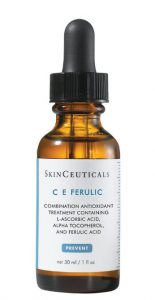 Where Can You Find Ferulic Acid
Where Can You Find Ferulic Acid
Ferulic acid is actually not as hard to find as it once was. It is most popularly added to vitamin C serums but it can be found in many other products including retinol serums. It’s also such a popular ingredient that you shouldn’t need to look too hard on the ingredients label to find it because if it’s in there, it will more than likely be very much mentioned on the front of the bottle.
In fact, a lot of the most popular vitamin C serums now seem to contain it and even the most popular vitamin C cheapies from Amazon are starting to jump on the bandwagon too although I’d be surprised if they’re formulated as well as the big guns (I could be wrong though). One of the most popular (and one of the most expensive) ferulic acid products out there would have to be Skinceuticals C E Ferulic which is such an effective product that SkinCeuticals actually patented the formula.
But it’s certainly not the only effective product out there and now with so many other brands adding it to their serums, you no longer have to pay through the tooth to get your hands on an effective ferulic acid product (not unless you want to that is).
Should You Add It To Your Skincare Regime?
100% yes, absolutely, especially if you’re looking to take your anti-aging game to the next level (unless you have allergy or sensitivity reasons that prevent you otherwise) so if you’re still a ferulic acid virgin then you may want to consider popping your proverbial ferulic acid cherry and trying it out for yourself.
What do you think of ferulic acid and how has it affected your skin? What results did you see? Please feel free to share your honest experiences in the comments below.


